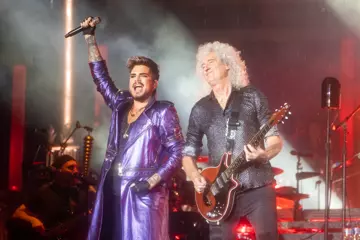A panel of nighttime-economy representatives painted a grim picture of Brisbane's future at an event held at Newstead venue The Triffid last night, with respected developer, Triffid co-owner and lifelong music fan Scott Hutchinson warning that the Fortitude Valley precinct is "absolutely precious and absolutely fragile, and it can be snuffed out in an instant".
"They're likely to kill it, and if they kill it, it won't come back," he said during the event, repeatedly asserting that the government's legislative machinations are "not about safety".
Hosted by The Urban Developer founder and publisher Adam Di Marco, Hutchinson was on the panel with Brisbane City Council member Vicki Howard, an inner-city resident for 15 years and Central Ward councillor since 2002, alongside Our Nightlife Queensland head honcho Nick Braban (also of venues such as GPO, The Wickham and Barsoma), Valley Safety Group chairman and AECOM associate director Alastair Leighton, and Black Bear Lodge owner and The Brightside director Jesse Barbera.
(While it would have been good to see more women and an opposing viewpoint on the panel, Di Marco advised at the outset that organisers had attempted to bring aboard state MP Grace Grace, vocal lockouts advocate Dr Anthony Lynham and representatives from Queensland Police to address the imbalance, but all apparently declined the invitation.)
Howard was quick to capitalise on the absence of an opposing representative, asserting that — contrary to the state government's repeated claims of consultations with the community — "Brisbane City Council was not consulted at all" on the decision to implement the changes to the state's liquor and lockout laws, going on to say they even conducted "an emergency motion in council to oppose the laws" and are "huge supporters" of the push to stop them.
Don't miss a beat with our FREE daily newsletter
"We have consistently said this is about the economy in Fortitude Valley, it's about small businesses and the impact this will have on the precinct," she said, as Hutchinson — a long-time opponent of the changes — added: "The music industry wasn't consulted at all either."
According to Leighton, the primary problem facing the Valley, as far as the ease of support generated for the legislative changes, is one of image (as well as at least a little bit of poor town planning, given the precinct lacks the circumstances "that enable people to move in and out with comfort").
"What's clear … is that the Valley has a perception issue," he said. "A lot of people think it's dangerous, and it's really not."
On the flipside, it's not just a sense of danger hanging over the Valley's head; rather, it also runs the risk of becoming ultra-bland by way of gentrification, which, along with the lockout situation, evidently threatens Brisbane's ability to fulfil its status as a so-called new world city, Howard said.
"New world cities don't shut down at midnight," she said. "That's not our vision for this city … Brisbane is being put on the world map, and it's a huge shame this is starting to impact on us."
Leighton, as an experienced planner, also spoke of the limitations placed upon the Valley by its spread of activities, or apparent lack thereof.
"One of the things that you notice going to other places is that there's a diversity of stuff taking place," he said. "The Valley is known for one particular thing … that's where the fragility lies in terms of that economic risk".
This was a sentiment indirectly echoed by Braban, who explained, "Our venues aren't these monsters of business they're made out to be … We're clearly not the Star Entertainment Group or Crown Casino".
"These are small, generally independently run businesses, and they are going to feel it," he said.
Said Barbera: "In terms of being an operator, it's pretty early days to get a statistical sample … but punter numbers have been dropping off for a litle while now."
"International promoters are eschewing Brisbane as a place to go," he continued. "[It's] Sydney without the population."
Reflecting on the slow death of the southern capital's nightlife in the wake of its own economically disastrous lockout laws, Hutchinson summarised: "We don't need a crystal ball — We've got a crystal ball, and it's called Sydney."
"If it can't come back, imagine how hard it will be to get Brisbane back," he continued.
However, all of the panelists acknowledged the size and severity of the cultural issues that underpin the entire alcohol-fuelled violence problem, which are, naturally, to do with the way our citizens view drinking to excess in a broadly harmless, irreverent light — and, Leighton said, it's not something that is likely to shift with any ease any time soon.
"Addressing safety is not a quick fix; there are cultural issues at the heart," he said — and it's not just drinking culture that needs to be addressed in some regard: "Creative culture is being undervalued and there's a real need to prop it up," he advised.
However, Hutchinson believes the role of drinking, and the associated assault rate, while important, isn't really at the heart of the issue, a stance he made exceedingly clear last night, describing the legislation as "puritanical nonsense".
"It's not about violence, it's 60% of the population don't like the way that the other 40% enjoy themselves," he said.
Either way, the evening-entertainment industry itself really isn't asking for much, Hutchinson said during a post-panel Q&A with the audience.
"Can music have the same rights as gambling?" he asked.
"That's all we're asking: Can music have the same rights as gambling?"
Good question, Scott. Good question.















